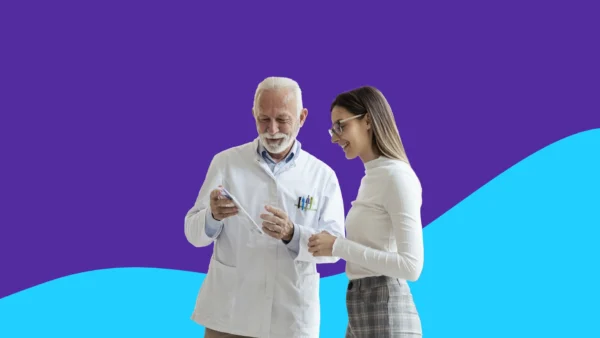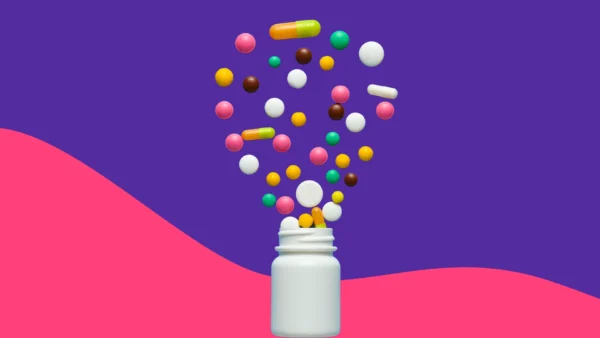The role of pharmacy technicians has undergone a metamorphosis in recent years. In the past, these professionals were primarily responsible for basic administrative and supportive tasks, acting as cashiers and clerks. But due to changes in the healthcare industry and technological advances, their roles have become essential in the day-to-day operations of pharmacies, says Sue Ojageer, Pharm.D., a clinical pharmacist at Walgreens in McKinney, Texas, and a 2022 Best of the Best Pharmacy Awards winner.
These days, the responsibilities of a pharmacy technician include supporting pharmacists and ensuring that patients receive safe and effective medication therapy, says Brian Staiger, Pharm.D., a clinical pharmacist in Buffalo, New York, and founder of Hello Pharmacist.
Here’s a look at the ways pharmacy technician responsibilities are changing, plus what pharmacy technicians can expect of their roles in the future.
How the role of a pharmacy technician has changed over time
Pharmacy technicians are considered crucial members of the healthcare team, playing an integral role in the delivery of high-quality healthcare services, says Dr. Ojageer. Their responsibilities have expanded to include complex tasks such as medication therapy management, immunization administration, and medication reconciliation, she says.
9 pharmacy tech roles and responsibilities
When it comes to patient care, the importance of pharmacy technicians cannot be overstated, Dr. Ojageer says. And as healthcare laws and regulations continue to change (not to mention technology advancing at a breakneck pace), the role of pharmacy technicians has become increasingly vital, she says.
The U.S. Department of Health & Human Services (HHS) expanded pharmacy technicians roles to include administering vaccines and point-of-care testing during the COVID-19 pandemic. That legislation has stuck since then, and it has received a positive response from the pharmacy community.
A number of factors have fueled the transformation of the pharmacy tech role, says Dr. Staiger, including a growing demand for healthcare services, the need to improve operational efficiencies, and the increasing complexity of medications, dispensing requirements, and billings. What’s more, pharmacy technicians are also crucial to the execution of immunizations and medication therapy management, he adds. Responsibilities vary, but may include:
1. Taking medication histories
An important role of pharmacy technicians, taking medication histories involves gathering information from patients about their current and past medication use, says Dr. Staiger. That includes prescription medications, over-the-counter products, and supplements, he says, adding that this role is essential when it comes to safe and effective medication therapy.
RELATED: Ways to get to know your customers better
2. Performing reconciliations
Pharmacy technicians are responsible for performing medication reconciliations, a crucial task that involves reviewing patients’ medication histories to identify any discrepancies and ensure that medications are being used safely and effectively, says Dr. Ojageer. By calling out missing information, potential concerns, and important details to the pharmacist, techs play a critical role, adds Dr. Staiger.
RELATED: How to explain side effects without scaring patients
3. Preparing and dispensing medications
Pharmacy technicians are responsible for distributing medications to patients in a variety of settings, including retail pharmacies, hospitals, and long-term care facilities, says. Dr. Staiger. “They work closely with pharmacists to ensure that medications are prepared and dispensed accurately and safely,” he says. This includes counting, measuring, and packaging medications, as well as labeling and organizing them for distribution.
4. Working with providers and insurance companies
Pharmacy technicians play an important role in billing, working with insurance companies, healthcare providers, and patients to obtain prior authorizations for medications, says Dr. Staiger.
By gathering and submitting information to insurance companies, working with healthcare providers to complete prior authorization forms, and communicating with patients about the status of their authorization and refill requests, pharmacy techs help ensure that patients have access to the medications they need, he says.
5. Providing administrative support
Pharmacy techs perform data entry tasks, such as entering prescriptions into a patient record and updating insurance information in pharmacy management systems, says Dr. Staiger. As technology continues to advance, techs can expect to use more automated systems, becoming proficient in electronic health records and other software systems to ensure accurate documentation and effective communication with other healthcare providers, adds Dr. Ojageer.
6. Managing inventory
Pharmacy technicians, typically team leads or supervisors, are often in charge of managing inventory within the pharmacy, says Dr. Staiger. This includes tasks such as daily inventory checks, performing inventory cycles, and monitoring expiration dates to ensure that medications and supplies are properly stored, labeled, and organized, he explains.
RELATED: Ways to prevent common pharmacy errors
7. Keeping medication in stock
They also work with multiple wholesalers to purchase medications at the best possible price while ensuring that there is enough stock available to meet patient needs, says Dr. Staiger. Their role takes on a customer service component if medication is out of stock and they must work with the patient and/or pharmacist to find a solution, he says.
8. Administering immunizations and other clinical responsibilities
Expanded roles for pharmacy techs include administering immunizations and performing point-of-care testing (cholesterol, blood sugar, and blood pressure), says Dr. Staiger. They may also be involved with medication compounding and assisting with clinical trials, depending on the healthcare setting.
RELATED: COVID-19 tips for pharmacists
9. Emergency care
Pharmacy technicians may often be the first line of defense in an emergency situation. Though the training requirements may vary by state, many pharmacy technicians are trained in basic life support—such as CPR—and first aid. In some states, they may be authorized to provide medications, such as Narcan or an Epipen, in an emergency. Pharmacy technicians are also responsible for managing emergency medication kits and ensuring that they are always stocked and up-to-date, she adds.
Pharmacy technician career outlook
In the future, it’s likely that technology will play a greater role in the pharmacy profession, perhaps even replacing some administrative and data entry tasks, says Dr. Staiger—but that doesn’t mean pharmacy technicians themselves will be replaced. Instead, their roles will continue to evolve to include new responsibilities and skill sets, he says.
Pharmacy technicians interested in expanding their role and taking on new responsibilities should consider pursuing additional education and training opportunities, such as certification programs or specialized training, advises Dr. Staiger. If you’re interested in expanding your training, you can start by checking out the resources available at the following organizations:
- American Society of Health-System Pharmacists (ASHP)’s Technician Program Accreditation portal
- National Pharmacy Technician Association (NPTA)
- U.S. Bureau Of Labor Statistics’s Occupational Outlook Handbook for Pharmacy Technicians
- Pharmacy Technician Certification Board (PTCB)
- Pharmacy Technician License Requirements by State
By building their skills and knowledge, pharmacy techs can position themselves well for the ever-changing pharmacy landscape.











